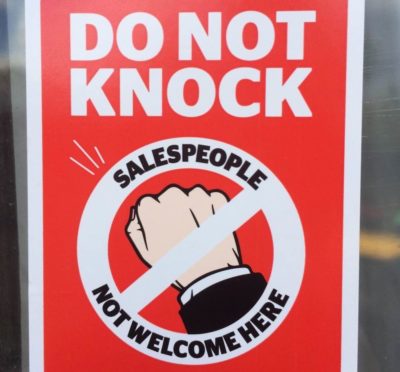
A ban on door-knockers pushing energy saving products and appliances as part of Victoria’s rebate scheme has come into effect, as part of a statewide crackdown on “nuisance marketing” and other dodgy energy sales tactics.
The ban means retailers taking part in the Victorian Energy Upgrades (VEU) scheme are prohibited from door-knocking starting August 01, 2024, following the ban on unsolicited telemarketing that was introduced in May.
Door-to-door sales for retailers accredited to Victoria’s Solar Homes scheme were banned back in 2021, across all Solar Victoria programs, including the rebates offered for rooftop PV, home battery storage and zero emissions vehicles.
The aim of the bans has been to crack down on a raft of “dodgy” energy sales tactics, often used by little-known companies seeking to exploit a market buoyed by government incentives.
“All-electric homes are healthier, cleaner and cheaper to run. Victorians need information they can trust on how to get there – and we’re making sure they get that appropriately and effectively,” state energy minister Lily D’Ambrosio said on Thursday.
“These bans strike the right balance between ensuring the program is accessible to all Victorians but protects them from unwanted contact or high-pressure environments.”
The VEU – which got a $5.9 million boost from the 2024-25 state budget – is a certificate-based scheme that offers discounts to replace old gas appliances with new efficient electric appliances, including upgrades for heating and cooling and hot water. Induction cooktops will be added to the scheme later this year.
On average, customers can get $900 off a reverse-cycle air-conditioner to replace a fixed gas heater, that will save them more than $200 every year. When replacing a whole-of-house gas ducted system with a reverse-cycle system, around $3,600 can be saved upfront and more than $600 off bills, annually.
Unlike the Solar Homes scheme, where the rebates for rooftop solar and battery systems are subject to a range of criteria and are means tested, all households and businesses are eligible for the rebates or discounts on offer through the VEU.
The rebates generate Victorian Energy Efficiency Certificates (VEECs) for accredited providers. Those providers then sell these certificates to energy retailers, who use them to meet annual emissions targets.
Victoria’s Essential Services Commission said on Thursday that businesses must now obtain consumer consent before visiting or telephoning to market energy efficient upgrades, products and services under the VEU program.
The ESC says it will support VEU accredited businesses and scheme participants to help them comply with the bans, while also actively monitoring compliance through tools including surveys and audits and by investigating complaints.
ESC acting chair Sitesh Bhojani says the commission has strong enforcement powers, including the power to institute civil litigation or criminal prosecution proceedings against businesses that do not comply with the bans.
It will also consider issuing penalty notices and imposing conditions, suspending or cancelling accreditation.
“Accredited persons and scheme participants must comply with the bans and put consumer rights and choice at the centre of their practice,” Bhojani says.
“We encourage consumers and industry to report breaches of the bans directly to us so we can investigate and act.”
The ESC says breaches of the doorknocking and telemarketing bans should be reported to the commission via 03 9032 1310 or veu@esc.vic.gov.au.

Sophie is editor of One Step Off The Grid and deputy editor of its sister site, Renew Economy. Sophie has been writing about clean energy for more than a decade.
